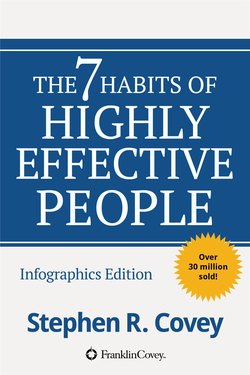Читать книгу The 7 Habits of Highly Effective People - Стивен Кови - Страница 10
На сайте Литреса книга снята с продажи.
ОглавлениеBut shortly after World War I the basic view of success shifted from the Character Ethic to what we might call the Personality Ethic.
Success became more a function of personality, of public image, of attitudes and behaviors, skills and techniques that lubricate the processes of human interaction.
This Personality Ethic essentially took two paths: one was human and public relations techniques, and the other was positive mental attitude (PMA). Some of this philosophy was expressed in inspiring and sometimes valid maxims such as “Your attitude determines your altitude,” “Smiling wins more friends than frowning,” and “Whatever the mind of man can conceive and believe it can achieve.”
Other parts of the personality approach were clearly manipulative, even deceptive, encouraging people to use techniques to get other people to like them, or to fake interest in the hobbies of others to get out of them what they wanted, or to use the “power look,” or to intimidate their way through life.
Some of this literature acknowledged character as an ingredient of success, but tended to compartmentalize it rather than recognize it as foundational and catalytic. Reference to the Character Ethic became mostly lip service; the basic thrust was quick-fix influence techniques, power strategies, communication skills, and positive attitudes.
